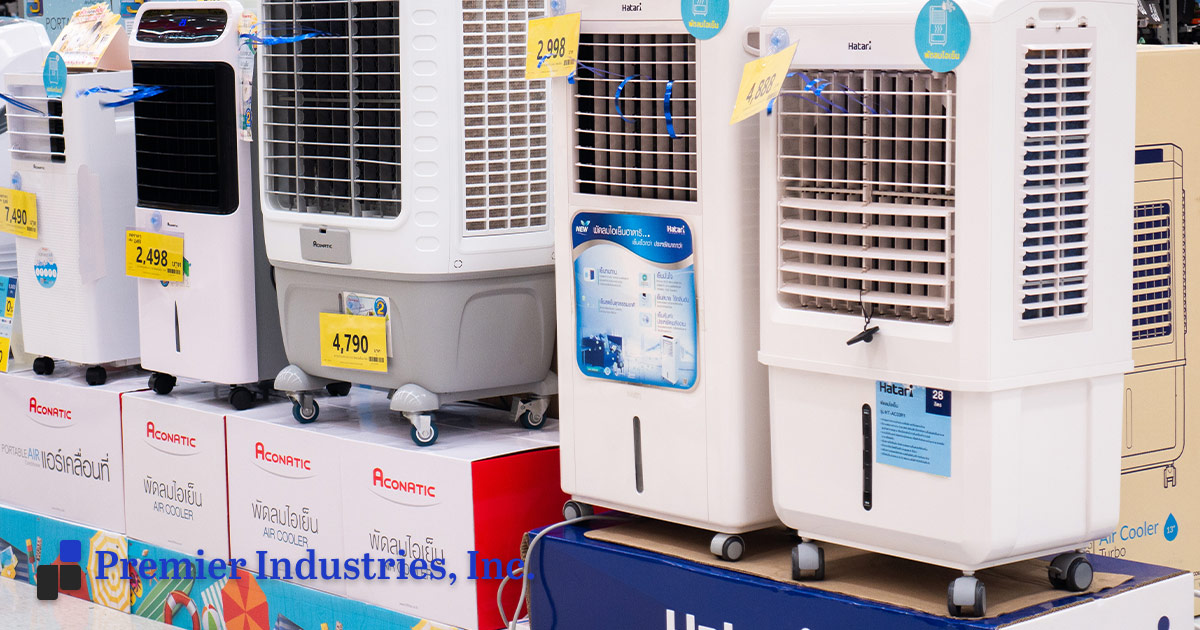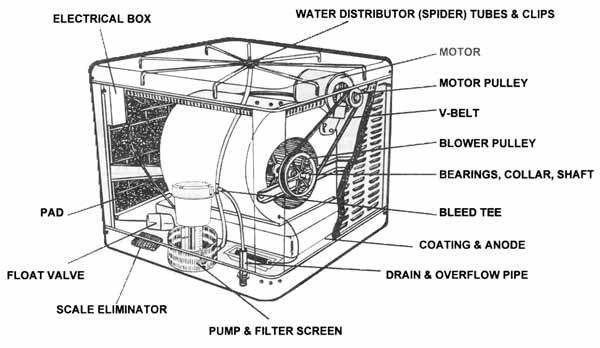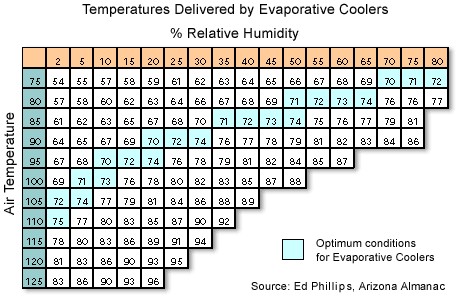
What Exactly is an Evaporative Cooler & How Do They Work?
May 27, 2020 8:54 pm Leave your thoughtsAir conditioners use a lot of electricity, and throughout the southwestern United States air conditioning use, and the associated cost spikes in the summer, but many people still rely on these systems all year to keep the house cool. If you’re looking for a more affordable option to cool your home, an evaporative cooler might be just what you need.
How Does a Swamp Cooler Work?
An evaporative cooler, otherwise known as a swamp cooler, works by converting warm air into cool by evaporating water present in the air. This is blown into the room, creating the effect of cooling throughout. This process starts with a layer of water in the bottom of the unit, which is pumped into the pads on the side of the unit. A fan then begins to pull the warm air into the unit through the pads, and as it moves through the pads, it is cooled. The blower then forces this into the ductwork and vent, into the home.
An evaporating unit can reduce the temperature by 25 degrees or more. You can more accurately predict how much lower this will be by measuring the dry-bulb temperature, which is the regular temperature of the air. Then, you’ll need to determine the wet-bulb temperature, which is the temperature using a thermometer covered in a wet towel. This temperature is what can be achieved by evaporate cooling. It is worth knowing, the higher the humidity in the air, the higher the wet bulb temperature. So if the dry bulb temperature is 100 degrees or more, and the relative humidity is low, the wet bulb temperature could be as low as 66 degrees. An evaporator unit could give you a temperature of 70 to 72 degrees, which is much more comfortable than the 100 degrees it might be outside.
An evaporating unit is not an AC unit, although it does actively cool. An air conditioner instead works by sending the air-current over a set of coils with refrigerant. It is then cooled, blown into your home, then recirculated through the home to keep your home cool. AC units use a closed system, which means you must keep your windows closed for them to function accurately. AC units actively remove humidity from the air, drying it, which provides a cooling experience. In humid climates, this helps a body feel less warm, but in dryer climates, the ambient humidity can be too low for this effect, making swamp coolers so effective in the southwestern United States.

What is ‘Evaporative Cooling’ Though?
Have you ever gotten out of a swimming pool on a hot day, and suddenly felt a distinct chill? That effect is very similar to how a unit works. Ancient Egyptians achieved the same effect by hanging wet blankets across the doors of their homes, so that air would blow through the damp blanket and be cooled. Before AC, homeowners might place an ice block in front of the fan as a way of cooling off. Evaporative coolers use that science to work in a more effective and efficient manner. An evaporator device is often called a swamp cooler, but this is somewhat of a misnomer, as evaporating coolers don’t work well in a swampy environment. They likely received this name because of the swampy smell that develops when they aren’t cleaned.
Are They Energy-Efficient?
Swamp coolers have significantly fewer and less expensive parts than AC units. They are much cheaper to build, as they are composed of a blower fan, a pump, pads and a box of sheet metal. In comparison an AC unit is much more expensive because they require all of these components, as well as requiring specialized equipment for the refrigerant.
An evaporator unit will typically cost significantly less than an HVAC system, and it doesn’t require highly manufactured parts, and the savings don’t stop here. It’s estimated that an evaporator unit has a monthly operating cost of a third of an AC unit because it can take three to four times the energy to run an AC unit over swamp cooling. Not only does that help your energy costs, it translates to saving energy in the environment, easily reducing your carbon footprint.
Although an evaporative unit can require more regular attention than an AC, it is much less expensive to maintain. It does need to be cleaned fairly often to prevent a swampy smell from the water and pads. However, unlike an AC unit, which uses chemicals and requires a professional technician, many homeowners and business maintenance personnel can handle these duties with an evaporator cooling unit. This maintenance also does not require the disposal of harmful chemicals that can often be damaging to the environment.

Explore Your Cooling Options
An evaporating unit can cool many spaces, whether residential or commercial, as long as the correct unit type and size is installed. They can also provide energy-efficient cooling, often for cheaper monthly operating costs when compared to air conditioning units. Contact Premier Industries for a free consultation on how an evaporator unit will fit into your cooling system needs.
Categorised in: Air Coolers
This post was written by Mike Nicolini
